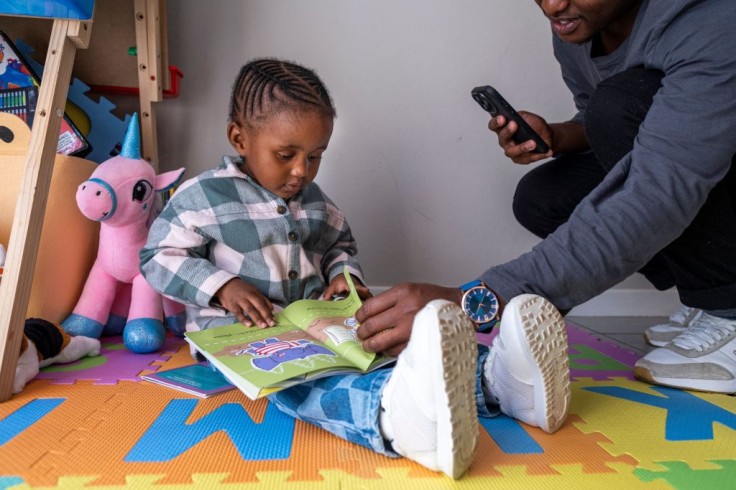
Early childhood education plays a vital role in shaping a child's cognitive, emotional, and social development.
It lays the groundwork for future academic success and overall well-being. As a parent, you hold the key to unlocking your child's full potential during these critical formative years.
According to Hi Mama, parental involvement in early childhood education is crucial for extending learning beyond the classroom and supporting a child's overall development.
Understanding what their child is learning at preschool allows parents to identify areas for improvement, boosting confidence and abilities.
Establishing effective communication between childcare centers and parents and actively involving parents as partners in their child's education positively impacts a child's learning ability, especially during the critical preschool years.
By fostering this connection, parents create a more positive learning experience, leading to better academic performance.
Utilizing parent communication apps like HiMama enhances collaboration and keeps parents informed of their child's progress and milestones.
With parents actively engaged, children receive the necessary support to reach their full potential and excel academically.
This article explores the importance of early childhood education and offers practical insights on how parents can actively support their child's learning journey to build a strong foundation for their future.
How Parents Can Support Their Kid's Early Childhood Education
Create a Nurturing Environment
From birth to age five, children's brains develop at an astonishing rate, forming essential neural connections that become the basis for future learning. Creating a nurturing and stimulating environment at home is crucial during this period. Encourage exploration, play, and curiosity, as these activities help children make sense of the world around them. Simple activities like reading books together, engaging in imaginative play, and exposing them to various art forms can enhance their cognitive abilities and language development.
Partner with Educators
According to Sprig Learning, as your child grows, they may attend preschool or early education programs. Take an active interest in their learning experiences and communicate with their teachers regularly. Collaboration between parents and educators creates a supportive learning environment and ensures continuity in your child's development.
Emphasize the Power of Play
Play is more than just fun; it is the primary vehicle through which young children learn. Engaging in play-based activities fosters creativity, problem-solving skills, and emotional development. Encourage unstructured playtime, where children can use their imagination freely. Additionally, educational toys and games that promote learning through play can further enhance their understanding of colors, shapes, numbers, and language.
Cultivate a Love for Reading
According to White Lodge, reading is one of the most valuable skills a child can acquire. It opens doors to knowledge and ignites their imagination. Make reading a daily ritual in your home, with age-appropriate books that pique your child's interests. As they grow, involve them in the storytelling process, ask questions about the plot and characters, and encourage them to express their thoughts and ideas. This practice not only improves their language skills but also deepens the parent-child bond.
Foster Social Interaction
Early childhood education is not only about academics but also about building social skills. Children learn important lessons about empathy, communication, and cooperation through interaction with their peers and family members. Arrange playdates, enroll them in preschool or daycare, or join community groups to provide ample opportunities for socializing. This exposure helps them develop emotionally and build strong relationships, which will be invaluable as they grow older.
Encourage Hands-On Learning
Children are naturally curious, and hands-on experiences provide them with a deeper understanding of the world. Engage in activities like gardening, baking, or simple science experiments that allow them to explore and discover on their own. This type of learning is not only enjoyable but also encourages problem-solving, critical thinking, and decision-making skills.
Stick To a Consistent Routine
According to the Child & Family Blog, a predictable routine in early childhood education refers to a structured and consistent sequence of activities or events that occur regularly within a specific timeframe. This repetitive pattern, characterized by regularity and consistency, provides children with emotional security, helps them develop self-regulation and time management skills, fosters independence, and supports language development. Implementing a predictable routine in schools, daycare centers, and homes creates a nurturing environment, ensuring children feel safe to explore and learn while preparing them for a successful and fulfilling future.
Be Patient and Encouraging
Every child learns at their own pace and in their own unique way. Be patient with their progress and avoid unnecessary comparisons. Encourage their efforts and celebrate their achievements, no matter how small. A positive and encouraging atmosphere motivates children to keep exploring and learning.
Early childhood education is a crucial phase that lays the foundation for a child's lifelong learning journey.
By engaging in meaningful conversations, introducing math concepts, supporting emotional development, fostering curiosity, and balancing structure with flexibility, parents can empower their children with the tools they need to succeed academically and emotionally.
Celebrating diversity, partnering with educators, and being patient and encouraging will help create a nurturing environment where children can thrive and build a strong foundation for a fulfilling and successful future.
Remember, the early years are a precious time to instill a love for learning and set your child on a path of lifelong curiosity and growth.
Related Article: Learning Through Play: Fun Activities that Boost Child Development